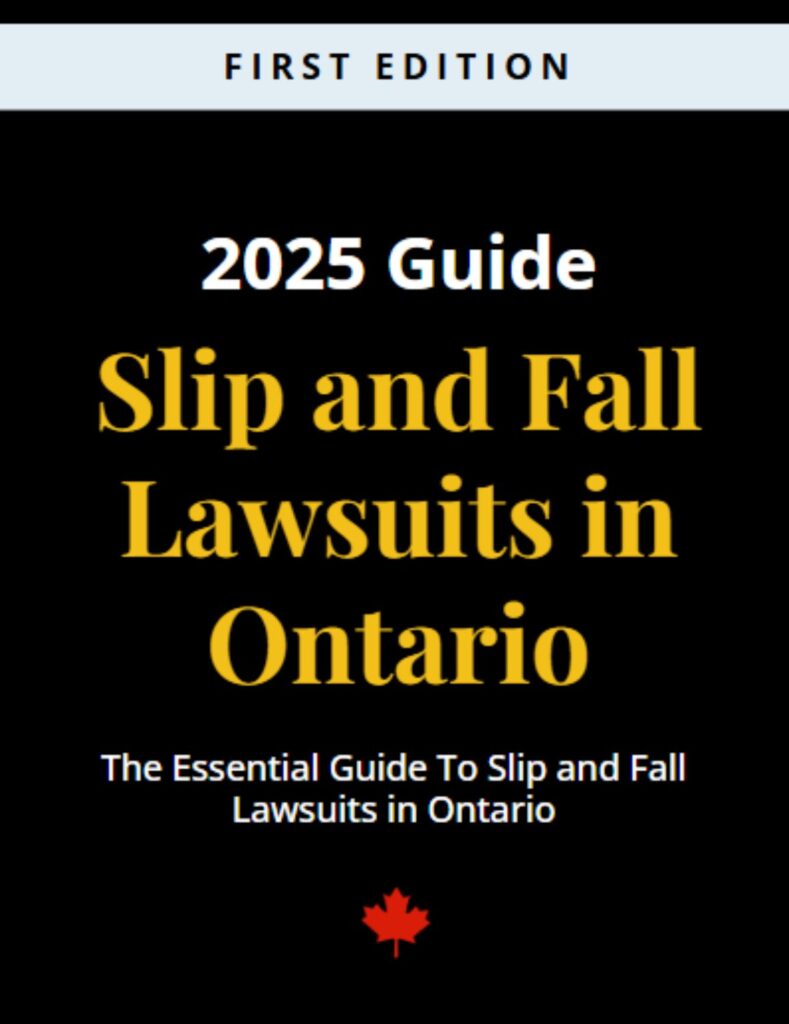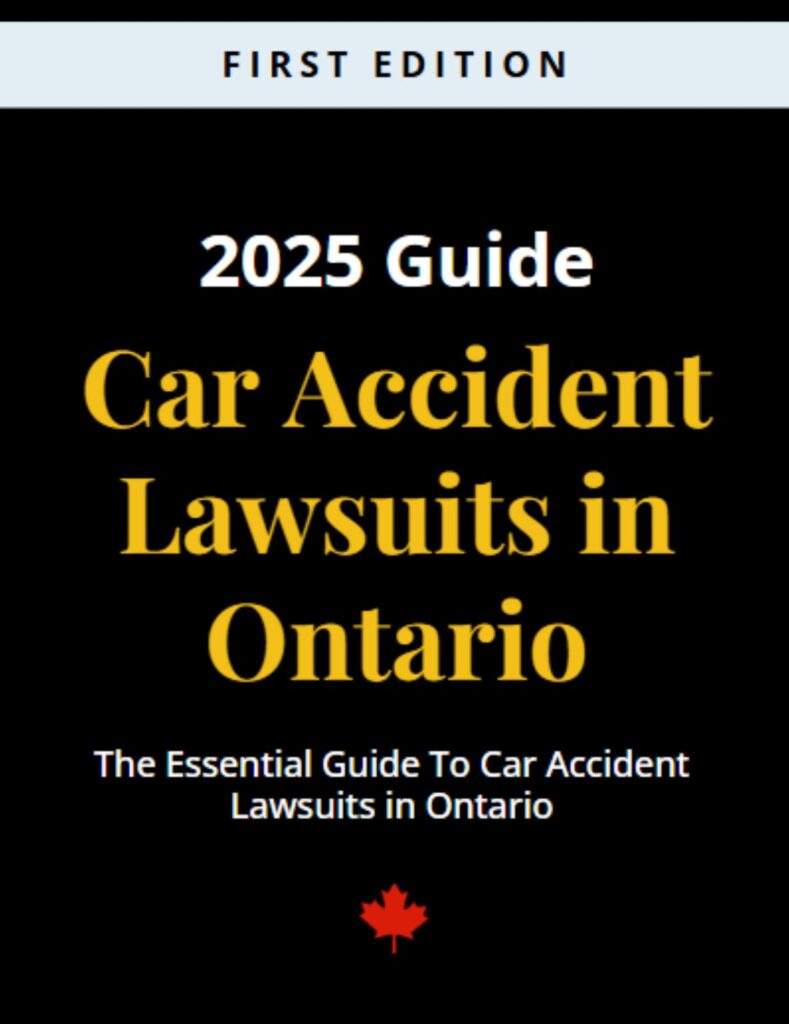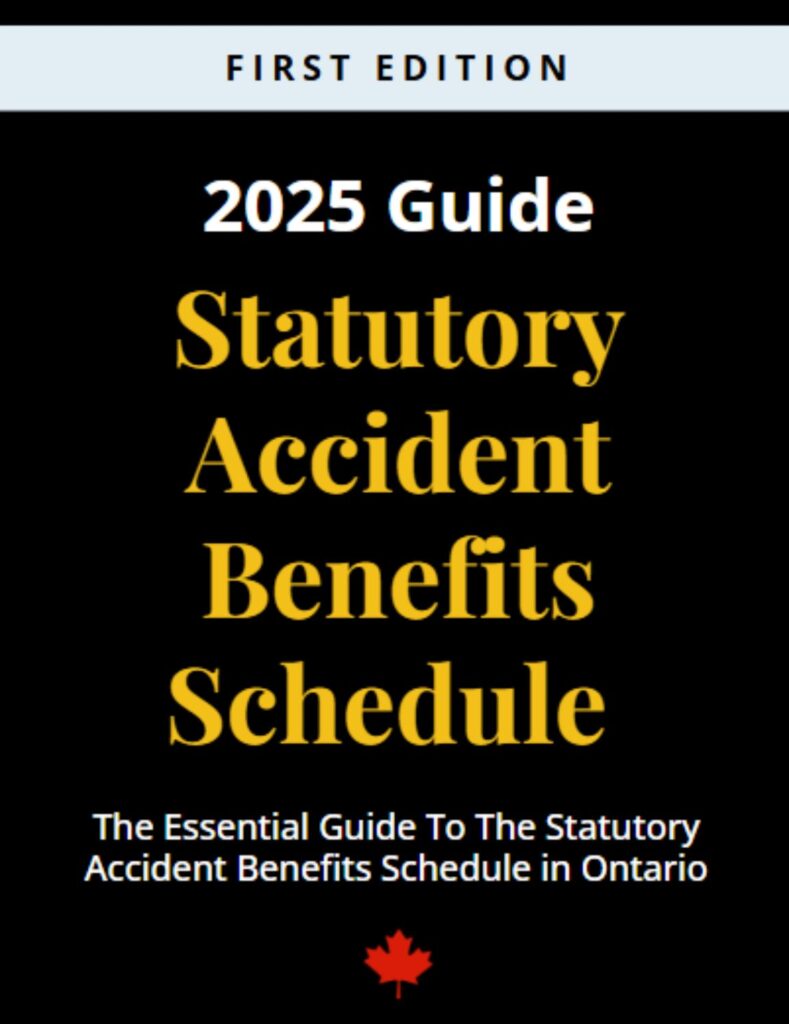Thunder Bay Neck Injury Lawyer
Find out if you have a case today.
Contact our Thunder Bay personal injury lawyers for a free consultation if you have legal questions regarding your personal injury claim.
Table of Contents
After any high-impact accident, you may be at risk of sustaining neck injuries. The most common injuries are whiplash and neck sprains, though fractures, misalignments, and disc slippage are also possible. Due to the high risk for neck injuries, you should make sure that you are checked for these potential injuries after an accident.
Whiplash is perhaps the most well-known neck injury, particularly in terms of car accidents. It can happen any time an impact causes your head to suddenly jerk forward and then back. This sudden motion causes the muscles and tendons in your neck to become strained or torn. If you are suffering from whiplash, you will experience symptoms including:
- Pain, especially when moving your head
- Decreased range of motion
- Tense or knotted neck muscles
- Tenderness in your neck
- Headaches starting at the base of your skull
Neck sprains, which are torn ligaments, may also occur after an accident in which your head jerks suddenly. Many symptoms are similar to whiplash, with the addition of muscle spasms, numbness in your arm or hand, and tingling and weakness in your arms. While you may not experience all of these symptoms, explain what you do experience to your doctor in order to ensure an accurate diagnosis.
Accidents may cause your spinal column to shift in such a way that the vertebrae are out of alignment, and may even cause damage to the discs. The discs are located between each vertebra and function both as shock absorbers and help to connect the vertebrae. Damage to these discs, then, causes pain, as well as a limited range of motion.
Fractures of the cervical vertebrae are less common but may occur, particularly when there is a direct impact to your head or neck. These injuries can have a wide variety of symptoms due to the potential involvement of spinal cord damage.
For any potential neck injury, your doctor will first do a basic physical examination in which he or she will measure your range of motion and ask you about the accident. It is likely that your doctor will also order x-rays or CT scans in order to confirm the exact nature of your injury, and especially when there are any suspected fractures or dislocations.
Treating Neck Injuries
Whiplash is relatively simple to treat, though it may take time to feel better. You will likely be advised to ice your neck, as well as to take painkillers and anti-inflammatories. In some cases, you may be advised to wear a neck collar, though these are not typically recommended Long-Term in order to keep neck muscles strong. Some physicians may also recommend massage therapy. Once your symptoms become less severe, your doctor may recommend gentle stretching to strengthen your neck and improve your range of motion.
Neck sprains are treated similarly, though doctors are more likely to prescribe a soft collar to allow your ligaments to rest. Cervical traction may also be an option for sprains. Otherwise, sprain treatment consists of the same elements as whiplash treatment.
Treatment of disc damage and fractures is more complex, as the severity and the potential involvement of the spinal cord can vary widely. More minor disc damage can be treated with rest, anti-inflammatory medications, physical therapy, and steroid injections. More severe disc damage may require surgery, particularly if there is pressure on the nerves. Fractures will require some form of immobilization, in the form of a brace for more minor fractures and including surgery and traction for more severe breaks.
LET US PUT OUR EXPERTISE TO WORK FOR YOU
Tell Us What Happened
Since 1959, we’ve helped thousands of Canadians get the compensation they deserve with their personal injury claims. One of Canada’s oldest personal injury law firms, personal injury law is exclusively what we do. Book a free consultation today with our top-rated personal injury lawyers.
Our team is available 24/7 to speak with you.

Seeking Compensation
No matter what your specific neck injury, you will certainly have medical expenses and will likely be unable to work for some time. As a result, you can seek compensation from the insurance company of the person at fault for the accident. Even if you were partially at fault, you can still collect compensation. Your total award amount will simply be reduced by the degree that you are determined to be at fault. For example, if you are 20% at fault for the accident, you can expect that your total award will be reduced by 20%.
Ideally, you will be able to file your claim with the at-fault’s insurance company, receive your payment, and move on. However, insurance companies do not work for you and will work to get you to accept less than you deserve. If you cannot come to an agreement with them, you will need to file a personal injury suit. In Ontario, you generally have two years from the date of the accident or from the date you learn that you have an injury caused by the accident to file this lawsuit. This time limit may seem longer than necessary, but remember that neck injuries, particularly whiplash, may take days, weeks, or even months to appear. The two years also include the time you may spend attempting to negotiate with the insurance company, which is not usually in a hurry to reach a resolution.
As part of your compensation, you are permitted to seek compensation for your pain and suffering. You will undoubtedly endure a significant amount of pain and suffering as a result of your accident, but it can be difficult to know its financial value. A Supreme Court ruling currently limits your compensation in this category to $392,000. This could change, though, if some area lawyers have their way. They state that the cap on pain and suffering is no longer relevant and should be eliminated, in part due to the existence of other city and provincial codes limiting recovery. Therefore, it is best to consult with an experienced Thunder Bay lawyer to arrive at a fair estimation of your pain and suffering, as well as to ensure that you comply with all legal caps on compensation.
Work With A Lawyer
Even if you feel certain that you will be able to come to an agreement with the insurance company, you would be wise to consult with our Preszler Injury Lawyers. Our lawyers may be able to ensure that your settlement is fair. Bringing your lawyer in early also speeds up the process of filing a personal injury suit if you are unable to reach an agreement since your lawyer will be up-to-date on the case.
More Thunder Bay Practice Areas
Proudly Canadian
Award Winning Personal Injury Law Firm
We are proud to be one of Canada’s oldest and long-standing personal injury law firms. Since 1959, we have been providing exceptional legal services and have established ourselves as leading personal injury lawyers in the Canadian legal community. It’s not just the awards that recognize our achievements, but also the wins we’ve achieved for thousands of Canadians with their personal injury claims.



More personal injury Topics
Here’s more information on personal injury related topics that we think you might find helpful.

personal injury
|
January 23, 2024
Injured as a Worker in Ontario? A WSIB Claim Isn’t Necessarily Your Best— Or Only— Option
In Ontario, the compensation of workers who sustain injuries or illnesses in the course of their employment is governed by the Workplace Safety and Insurance…

personal injury
|
December 7, 2023
Does a Child Have the Right to Sue for Personal Injury?
As much as parents and guardians do everything they can to keep children safe and protected from dangerous situations, there are occasions when a child…

personal injury
|
October 10, 2023
Gain Peace of Mind Through a Structured Settlement
The phrase “structure binds anxiety” is often used by psychologists to help people suffering from anxious feelings and intrusive thoughts. This maxim’s aim is to…
More personal injury Video Resources
We also have some videos on the topic of personal injury claims
personal injury FAQs
Here are some commonly asked questions for personal injury claims
What does a lawsuit look like?
Every personal injury lawsuit is generally comprised of five main parts. The length of time each part takes can vary depending on the complexity of your case. Your lawyer will help you through each stage by providing tailored advice and strong legal representation.
You can expect:
- Statement of Claim: This is a formal document that initiates the personal injury claim against the at-fault party (or individual you are suing).
- Examination for Discovery: This is a meeting where you and your lawyer will ask the opposing party questions about the claim, the accident, fault, and anything else that is deemed relevant. The opposing party will also have the opportunity to ask you questions.
- Gathering of Evidence: Your legal team will gather a variety of evidence on your behalf to strengthen your claim. This might include medical records, police reports, images from the accident scene, witness testimony, expert opinions, and more.
- Mediation: If you would like to attempt to settle without going to trial, you will likely undertake mediation. Mediation involves you and the opposing party negotiating the terms of your settlement with the assistance of a neutral third party.
- Trial: If you are unable to reach a settlement during mediation, your claim will proceed to trial. During trial, your lawyer will present your case and the evidence they have gathered before a judge (and sometimes a jury). Once complete, the judge will decide the final amount of compensation you’re entitled to.
It’s important to note that a majority of personal injury claims are settled through mediation, out of court. Our Toronto personal injury lawyers help guide clients through each of these stages, so they don’t have to navigate the legal complexities alone.
How much will I have to pay for lawyers’ fees?
Our personal injury lawyers work on a contingency-fee basis, meaning we only get paid if you win your case. A percentage of the settlement you receive will go towards lawyers’ fees. There are no upfront, out-of-pocket payments required.
What type of compensation can I expect to get?
When you’re injured in an accident due to someone else’s negligence, there are many different types of compensation you may be eligible to receive. The amount and kind will depend on the severity of your injury and the specifics of your case.
Common damages you might claim include:
- Pain and suffering
- Out-of-pocket expenses
- Loss of income
- Housekeeping losses
- Medical costs
- Legal costs
- And more
Our experienced Toronto personal injury attorneys will help maximize what you can recover by exploring your case and eligibility in depth. We aim to ensure that the compensation you receive reflects not only your current suffering, but the lifelong effects that your accident may have in the future.
When can I sue for non-pecuniary general damages (e.g. pain and suffering, loss of enjoyment of life, etc.)?
In Ontario, you can sue for non-pecuniary damages if you have suffered a permanent and serious impairment of an important physical, mental, or psychological function, or permanent, serious disfigurement. This is known as the “threshold.” If you meet this threshold, you can sue for general damages such as pain and suffering, loss of enjoyment of life, and other similar losses.
How long will it take to settle my case?
The length of time it takes to settle a case depends on several factors, including the complexity of the case, the extent of your injuries, and whether the other parties involved are willing to settle. Some cases can be settled in a few months, while others can take years.
How long will the process take?
The length of time a personal injury claim can take varies widely according to the specifics of your case. While some cases settle in a matter of months, some can take anywhere from two to four years.
Some factors that affect the duration of personal injury claims include:
- Complexity of your injuries
- Each party’s willingness to settle
- Whether a claim goes to court
- Insurance company cooperation
- Availability of evidence
- And more
When liability is clear or injuries/damages are more clearly documented, cases may move faster. A personal injury lawyer will make sure the process keeps moving, although sometimes delays (like court backlogs) are unavoidable. Seeking personal injury legal advice early may help you streamline your timeline.
How long do I have to sue?
In Ontario, generally speaking you have two years from the date of your injury-causing accident to file a claim. However, based on the circumstances of your individual case, this timeline could be subject to additional limitations.
Do I have a strong case?
After taking advantage of a free initial consultation with our personal injury lawyers, the strength of your case can be evaluated based on the evidence available and the specific circumstances of your accident. Our personal injury lawyers offer case-specific legal feedback to help you understand the strengths and weaknesses of your case and advise you on legal options that might be available.
Got more questions?
If you have more questions or need legal help regarding personal injury claims, contact our legal team for help.
We’re happy to help.
INJURED IN AN ACCIDENT IN Thunder Bay?
Book a FREE Consultation
With Our Legal Team Today
Our phone lines are available 24/7
During your free consultation you will find out if you have a case worth pursuing as well as answers to any legal questions you may have.



